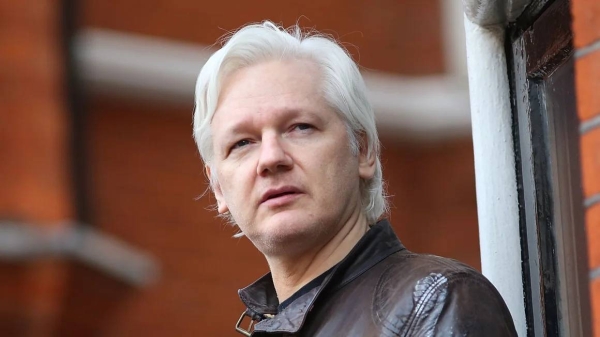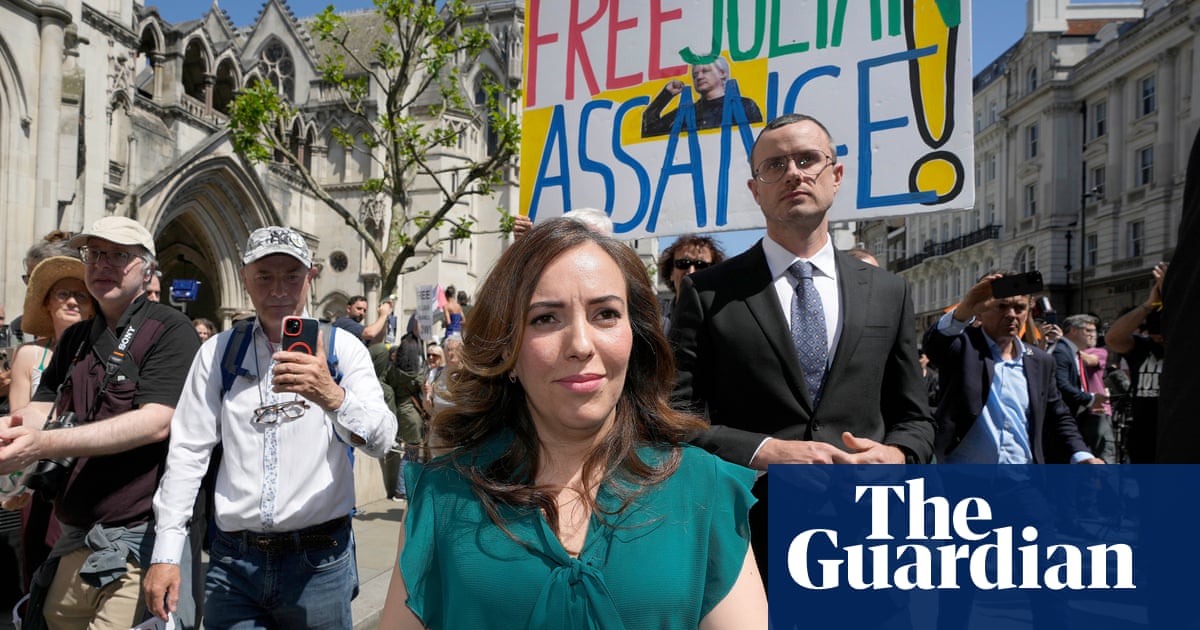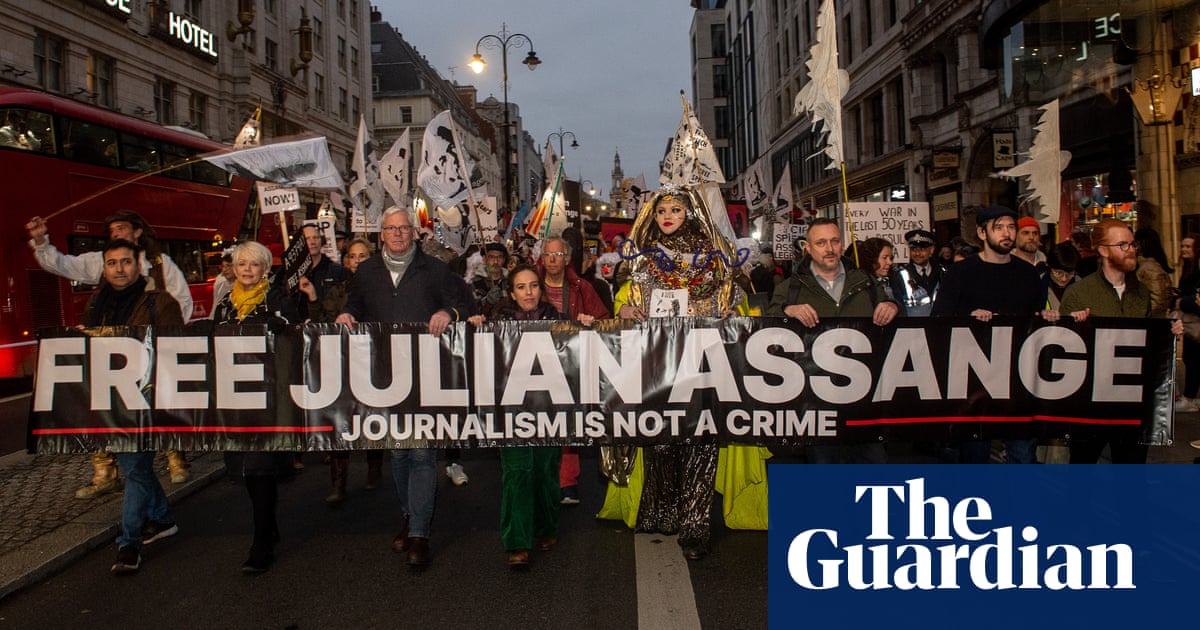
Priti Patel has approved the extradition of the WikiLeaks co-founder Julian Assange to the US, a decision the organisation immediately said it would appeal against in the high court.
The case passed to the British home secretary last month after the UK supreme court ruled that there were no legal questions over assurances given by US authorities on Assange’s likely treatment.
While Patel has given the green light, WikiLeaks immediately released a statement to say it would appeal against the decision. “Today is not the end of the fight,” it said. “It is only the beginning of a new legal battle. We will appeal through the legal system; the next appeal will be before the high court.”
The statement said anyone who cared about freedom of expression should be “deeply ashamed” that the home secretary had approved Assange’s extradition.
“Julian did nothing wrong. He has committed no crime and is not a criminal. He is a journalist and a publisher and he is being punished for doing his job,” it said. “It was in Priti Patel’s power to do the right thing. Instead she will for ever be remembered as an accomplice of the United States in its agenda to turn investigative journalism into a criminal enterprise.”
Any appeal is likely to focus on grounds such as the right to freedom of expression and whether the extradition request is politically motivated. Patel had been considering whether the US extradition request met remaining legal tests, including a promise not to execute him.
Assange is being held at Belmarsh prison in London after a lengthy battle to avoid extradition. At a press conference in London, his wife, Stella Assange, said: “We are not at the end of the road here. We are going to fight this. We are going to use every available avenue. I’m going to use every waking hour fighting for Julian until he is free, until justice is served.”
The saga was triggered in 2010 when WikiLeaks published a series of leaks provided by the then US army soldier Chelsea Manning, as well as a dump of more than 250,000 US diplomatic cables, some of which were published in the Guardian and elsewhere, containing classified diplomatic analysis from world leaders. The US government launched a criminal investigation into the leaks.
Also in 2010, an arrest warrant for Assange was issued for two separate sexual assault allegations in Sweden. The UK ruled that he should be extradited to Sweden. This prompted him to enter the Ecuadorian embassy in London in August 2012, claiming political asylum. He feared that if he was extradited to Sweden he would in turn be extradited to the US.
Assange finally left the embassy in 2019. He was arrested in the UK for skipping bail and ultimately jailed, then extradition proceedings to the US were started against him.
Assange’s brother said on Friday that the appeal would include new information not previously taken to the courts, including claims made in a report last year of plans to assassinate him.
“It will likely be a few days before the [14-day appeal] deadline and the appeal will include new information … on how Julian’s lawyers were spied on, and how there were plots to kidnap and kill Julian from within the CIA,” Gabriel Shipton told Reuters in an interview.
Patel’s decision was met with immediate criticism from campaigners, journalists and MPs. Caroline Lucas, the Green party MP for Brighton Pavilion, said: “Absolutely shameful that Priti Patel has approved Julian Assange’s extradition to US – this sets a dangerous precedent for press freedom and democracy. US authorities are determined to silence him because they don’t like what he revealed.”
The former cabinet minister David Davis said: “Sadly, I do not believe Mr Assange will get a fair trial. This extradition treaty needs to be rewritten to give British and American citizens identical rights, unlike now.”
The veteran BBC broadcaster John Simpson said: “Journalists in Britain and elsewhere will be very worried by the decision to extradite Julian Assange to the US – both for his own wellbeing and for the precedent it creates for journalism worldwide.”
John Pilger, a journalist and longtime supporter of Assange and a fellow Australian, said: “A new appeal will challenge the political rottenness of British ‘justice’.”
The new Australian government said it believed Assange’s case had “dragged on for too long and that it should be brought to a close”. “We will continue to express this view to the governments of the United Kingdom and the United States,” the foreign affairs minister, Penny Wong, and the attorney general, Mark Dreyfus, said in a statement responding to Patel’s decision.
The prime minister, Anthony Albanese, had said last year, when he was the opposition leader, that he did “not see what purpose is served by the ongoing pursuit of Mr Assange” and that “enough is enough”.
A Home Office spokesperson said: “On 17 June, following consideration by both the magistrates court and high court, the extradition of Mr Julian Assange to the US was ordered. Mr Assange retains the normal 14-day right to appeal.
“In this case, the UK courts have not found that it would be oppressive, unjust or an abuse of process to extradite Mr Assange.
“Nor have they found that extradition would be incompatible with his human rights, including his right to a fair trial and to freedom of expression, and that whilst in the US he will be treated appropriately, including in relation to his health.”












